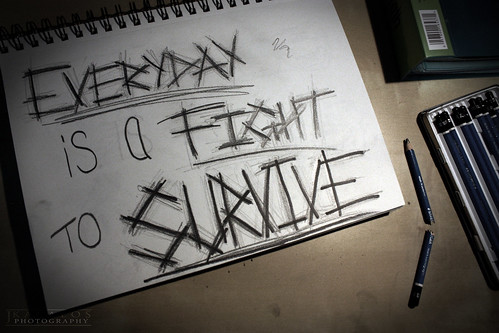When I was in the fourth grade, a popular girl named
Paula led a gang of girls and boys to engage in a disturbing game at recess. In this game she commanded the boys to ambush
select girls, take off their clothes, and toss the clothes into mud puddles. I
became one of Paula’s unfortunate victims. At the time my parents were away on
a week-long vacation and I was staying with family friends. Humiliated, tearful, and
muddy, I went to the principal’s office. I named names. The principal
interviewed all of the children involved. He announced “since all of you told
different stories I’m going to punish you all. This week you will all be
benched at recess.” My sentence came down to a week of humiliation sitting next
to my tormentors during every recess period. By the time my parents returned
from vacation I had already served my time.
I learned some valuable lessons from this bully, and
others I’ve encountered over the years. I learned that popular people and good
people aren’t often the same people. I learned that I could suffer humiliation
and survive. This knowledge gives me the
courage to take risks that have paid off in my life. I learned that people in
authority look for easy explanations and solutions. I now keep my communication
clear, simple, and precise whenever I speak with someone in authority.
Complexity and political success do not work well together.
Bully prevention programs have become a cottage
industry in this country. The tragic suicides of bullied children break my
heart and inspire many of us to find solutions to the problem of human cruelty.
Social scientists find that when one person comes to the aid of a victim, it encourages others to step up as well. When we motivate children to
speak up for others, it can make a huge difference in the life of a tormented
child.
It’s equally important to help our children develop the inner strength necessary to cope with the inevitable injustice and cruelty they
will encounter in life. Kenneth Ginsburg, M.D., a pediatrician joined forces with the AAP in their book, A Parent’s Guide to Building Resilience in Children and Teens: Giving Your Child Roots and Wings. Dr. Ginsburg writes that parents can help their children
and teens recover more quickly from painful experiences by fostering what he
calls the “seven C’s of resilience.” I’ll talk about four of the C’s here:
- Competence: focus on something your child does pretty well, and encourage them to grow in that area. When a child works every day on skill development they can transfer that habit to learning other things important for survival.
- Confidence: when children develop competencies they grow in confidence. Encourage persistence and effort rather than competition and success. I always tell my children, “I’m proud that you worked so hard for that competition,” not “I’m proud that you won.”
- Connection: when children feel secure and loved at home they can suffer at school but have a safe place to recover when they go home. For many children home is just another battlefield. Encourage your child to share feelings with someone they trust.
- Character: children who are taught strong morals and values can find strength in those values when confronted by unethical or cruel behavior. Teach your child to take pride in being a good, caring, compassionate person.

Of course lecturing our children
about good character won’t help them learn if they watch us
behave badly. In this election year our political discourse remains hostile,
rigid, and filled with personal attacks. It might help to listen to your
political rhetoric and try to remove the hostile tone. Your children are
listening to you, and following your lead.
























5 comments:
Great Information and advice. My 35 year old son, who was bullied in elementary and middle school, recently told me thank you for always being there to listen and encourage him during that trying time in his life. He is now a business owner, and is teaching his children to show compassion to others, in all situations. I am very proud of him.
The proud mother of a survivor of bullying.
I was picked on for what i wore at school. But never was cruel and mean as I read and hear on the news. I hate hearing these stories. Striping someone of their clothes makes me wonder what these kids have had done to them in the past. What I do not understand why teachers/adults blow it off? My mom always said bullies usually have issues going on at home. As adults we tend to slightly "bully" as we judge/ pick on other people by race,what they do for a living,or what car they drive. Like RK said "Can't we just get along"?
Thank you both for your comments. It's true that victims of bullying often have more compassion towards those who are different. I always thought that my tormentor probably ended up a CEO or a convict or both.
It's different now. With e-mail, facebook and all the other social media forms everybody gets into the act. Why you dont see that is mind boggling
I agree Melissa that things are much tougher for young people who are bullied. The tragic case of Tyler Clementi, the Rutger's student who committed suicide after his roommate broadcasted his sexual encounter comes to mind. On the internet there's no escape and the humiliation can take place repeatedly. Social change occurs more slowly than technological change, so kids are very vulnerable now.
Post a Comment